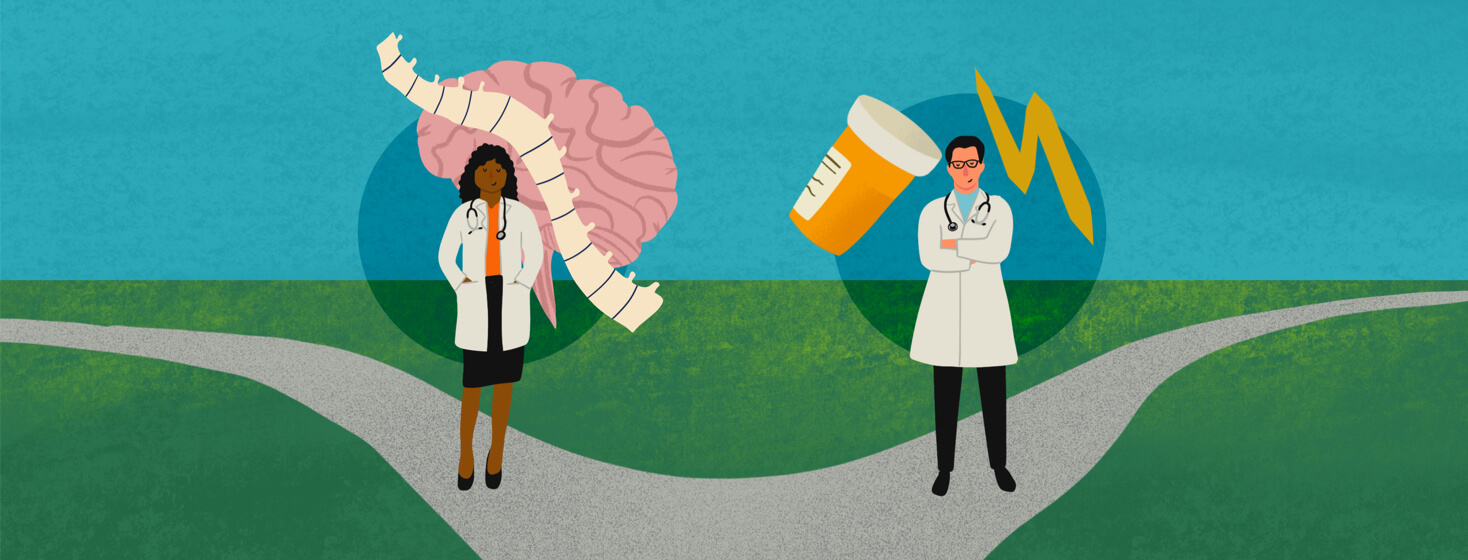Neurologist Versus Migraine Specialist
I’ve struggled with migraine for all of my adult life - and yet it was only last year that I learned that not every neurologist is a headache specialist.
What is a neurologist?
A neurologist is a doctor specializing in diseases of the brain and spinal cord, nerves and muscles. Neurological conditions include epilepsy, stroke, MS, head injuries, migraine, and Parkinson's disease. Many neurologists choose to fine-tune their studies and narrow their focus to one or a few of these conditions specifically.
What is a migraine specialist?
A headache or migraine specialist is a neurologist who focuses mainly on headaches and migraine and often is board certified in headache medicine. They are uniquely qualified to diagnose and treat headache disorders, are up to date on the most current and newest migraine treatment options, and are acutely familiar with breaking the cycle of long-lasting headaches.
I didn't see a specialist before
Well, for a long time, my migraines were responsive to medication, so I didn’t think much about rocking the treatment boat. The neurologist my insurance had recommended at my hospital was fine - she was friendly, easy to communicate with, and most importantly, renewed my prescriptions. In general, I only saw her a few times a year, and honestly, I had many other specialists I spent much more time with.
An earth-shattering attack
Last fall, I woke up with an earth-shattering migraine a few days after experiencing a miscarriage. I took my regular medication and then two hours later took another dose. When neither made a dent, I called my doctor's office and asked for additional support. But, rather than prescribe another medication, or recommend a migraine cocktail via infusion, she was sending me to the emergency room. Why? Because she wanted to rule out swelling of the brain.
Excuse me?
I know a migraine when I experience one
I’ve been a migraine patient for several decades. I know a migraine when I experience one.
I’d been her patient for a few years now. She knew me. Where was this coming from? Well, it turns out that she is actually an autoimmune encephalitis specialist, and so this was something she wanted to examine further. To me, it made no sense. And, I was furious. I felt like I was being dismissed and left alone in my hour of need. While I’ll write more about how this experience played out another time, it’s important to share that this experience led me to find a new doctor.
The difference a specialist makes
This time, I went into my search for a migraine specialist. I wasn't playing around. I needed someone dedicated to the evolving field of migraine treatment, especially as I was continually trying to conceive and hoping to enter a season of pregnancy.
During my first appointment with a potential new physician, he asked a series of questions I’d never encountered from my previous neurologist, and I was automatically intrigued by the differences. In just 30 minutes' time, this new doctor had gone over all of my choices for preventive, abortive, and emergency migraine medications, as well as protocol for emergencies, both in terms of communicating with him, getting the prescriptions I need, and getting seen ASAP. I was blown away.
Who do you see?
It turns out that there are distinct differences between a neurologist and a migraine specialist, especially evident in my hour of need. Do you see a migraine specialist? Has your doctor met your expectations while you were in crisis? I'd love to hear your story below.

Join the conversation